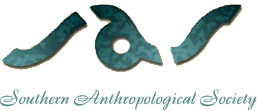Southern Anthropologist
Abstract
Doing Oral History engages students as co-researchers in a community-engaged oral history project begun in 2011. Supported by a research partnership between a faculty member, a university oral history center, and a non-profit archive, the course engages learners in the exploration of a festival and its communities. Through oral histories with long-time festival workers, artists, staff, volunteers, and neighbors, we contribute to expanding the history of a festival and the social movements that have shaped it. We also consider the ways in which diverse festival workers come to feel a part of a community centering African American working-class folk, cultures, and performance traditions. Students learn from narrators connected to the festival, recording their life histories, and learning about neighborhood and city history, cultural traditions, and social movements. These oral histories engage the complex racialized, classed, and gendered hierarchies which the festival reflects, the central place of folklore and cultural heritage in the public culture of the region, and the challenges of making a living in a precarious tourism economy. In this article, I reflect on how the class contributes to doing and teaching public anthropology in the South.
Relational Format
journal article
DOI
10.56702/SAOL7955/santh3801/4
Recommended Citation
Regis, Helen A.
(2023)
"Doing Oral History as Public Anthropology,"
Southern Anthropologist: Vol. 38:
No.
1, Article 4.
DOI: 10.56702/SAOL7955/santh3801/4
Available at:
https://egrove.olemiss.edu/southern_anthropologist/vol38/iss1/4


